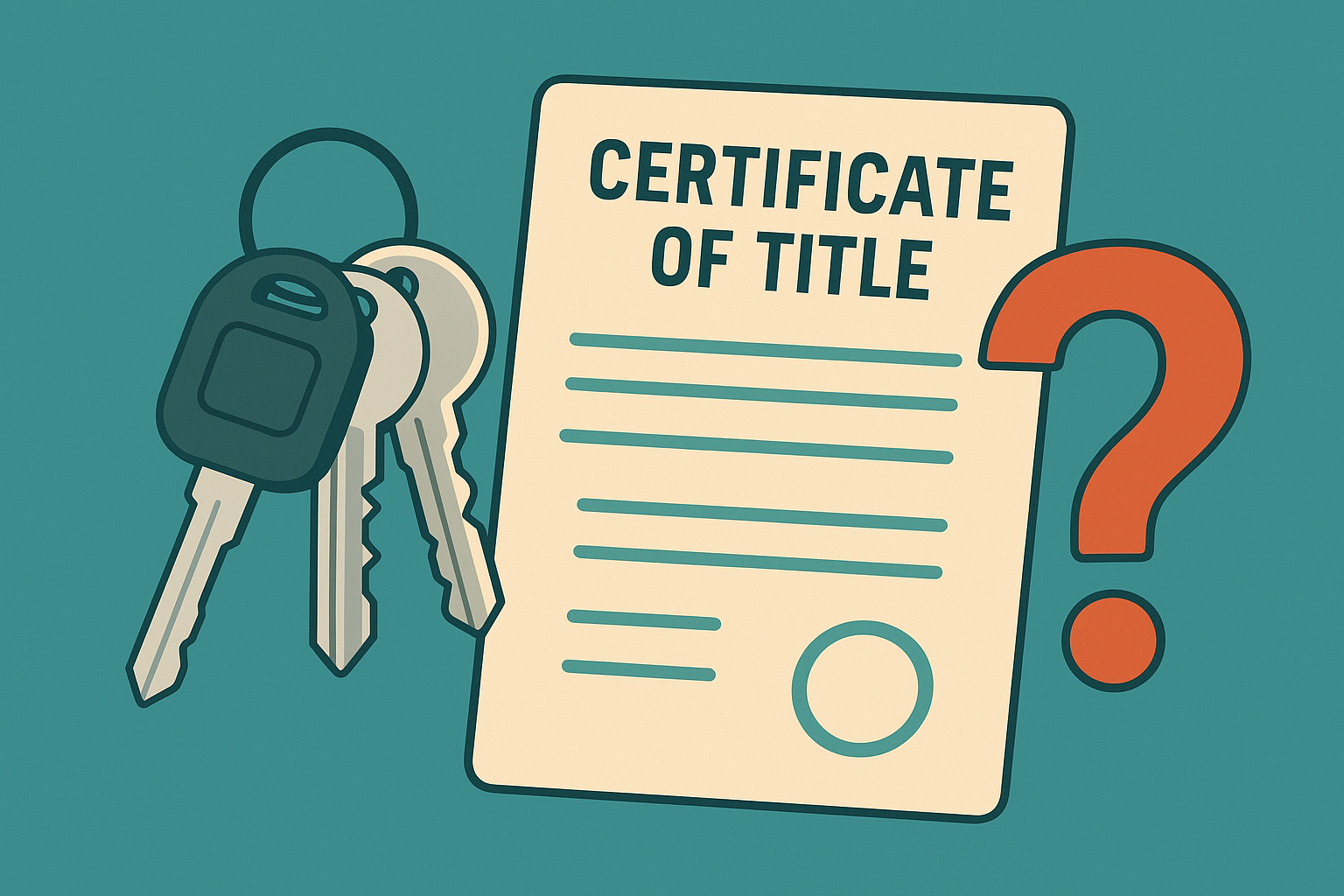Certificate of title bonds are an essential component of the legal and financial landscape, yet they often remain shrouded in mystery for many individuals. These bonds serve as a form of protection in the event of a dispute over the ownership of a vehicle or property. But what exactly are certificate of title bonds? Why would someone need one? How can you obtain a certificate of title bond? And what are the costs and coverage associated with these bonds? In this discussion, we will delve into the intricacies of certificate of title bonds, explore the reasons for their necessity, and weigh the benefits and risks that come with them. By the end, you will have gained a comprehensive understanding of these bonds and their significance in the realm of property ownership.
Understanding Certificate of Title Bonds
Certificate of title bonds are a type of surety bond that provide a guarantee for the ownership of a property or vehicle. They are commonly used in situations where there is an issue or discrepancy with the title and are often required by government agencies or lenders.
Definition and explanation of Certificate of Title Bonds
A Certificate of Title Bond is a type of surety bond that provides financial protection to the owner of a vehicle or real estate property in case there are any issues with the title. Here is a breakdown of the key aspects related to Certificate of Title Bonds:
- Understanding requirements: Before obtaining a Certificate of Title Bond, it is important to understand the specific requirements set by the state or local government. These requirements may include providing proof of ownership, paying any outstanding fees or taxes, and resolving any existing title disputes.
- Process of obtaining: To obtain a Certificate of Title Bond, the owner must work with a surety bond provider. The provider will assess the owner’s eligibility and financial stability before issuing the bond. The owner will then pay a premium, typically a percentage of the bond amount, to secure coverage.
- Importance of certificate: A Certificate of Title Bond is crucial for owners who are unable to obtain a traditional title due to unresolved title issues. It allows them to legally operate or sell their vehicle or property while protecting them from potential financial losses.
Types of Certificate of Title Bonds
When it comes to certificate of title bonds, there are several types that are commonly used. These include motor vehicle title bonds, lost title bonds, and defective title bonds. Each type serves a specific purpose and helps to ensure that the rightful owner of a vehicle or property is protected.
Motor vehicle title bonds
Motor vehicle title bonds encompass a variety of certificate of title bonds that serve as a means of financial protection for motor vehicle owners and the state. These bonds are crucial for various purposes, including renewing motor vehicle title bonds, transferring motor vehicle title bonds, and meeting the requirements for motor vehicle title bonds. It is important to address common misconceptions about motor vehicle title bonds and understand how they compare to other types of surety bonds.
Lost title bonds
Lost title bonds are a specific type of certificate of title bond that provide a solution for individuals who have lost or misplaced the original title to their motor vehicle. When obtaining a lost title, there are certain requirements that need to be met. The process of obtaining a lost title involves submitting an application, providing necessary documentation, and paying applicable fees. Consequences of a lost title can include difficulties in selling or transferring ownership of the vehicle. Alternatives to lost title bonds include filing for a duplicate title or pursuing a court order to establish ownership.
Defective title bonds
Defective title bonds are a specialized form of certificate of title bond that provide a remedy for individuals facing challenges with the legal status or validity of their vehicle’s title. In order to meet title bond requirements, individuals must go through the title bond process, which involves providing proof of ownership, paying the necessary fees, and obtaining the bond from reputable title bond providers. Defective title bonds offer coverage for any potential legal disputes or issues surrounding the title of the vehicle.
Reasons for Obtaining Certificate of Title Bonds
Certificate of Title Bonds are required in certain situations when there is a lack of clear ownership or legal documentation for a vehicle or property. This bond provides protection to potential buyers or lenders by ensuring that they will be compensated if any claims or challenges arise regarding the ownership of the asset. Some situations where a Certificate of Title Bond may be necessary include lost or stolen titles, incomplete or incorrect documentation, or disputes over ownership.
When and why are Certificate of Title Bonds required?
In certain circumstances, individuals may be required to obtain a Certificate of Title Bond to ensure compliance with legal and financial obligations related to their vehicle ownership. Here are some situations that may require a title bond:
- Missing or incorrect title documentation: If an individual cannot provide the necessary title documents for their vehicle, a title bond may be required to obtain a new title.
- Ownership disputes or liens: In cases where there are ownership disputes or outstanding liens on a vehicle, a title bond may be necessary to resolve the issue.
- Salvage or rebuilt titles: Vehicles that have been deemed salvage or have undergone significant repairs may require a title bond to establish their legal ownership and ensure they meet safety standards.
Alternatives to title bonds include obtaining proper documentation or resolving any disputes or liens. Legal requirements for obtaining a title bond vary by state, so it is essential to consult local regulations.
Situations where a Certificate of Title Bond may be necessary
In certain situations, obtaining a Certificate of Title Bond becomes necessary. One such situation is when purchasing a vehicle without a title, as the bond can provide proof of ownership. Another instance is when inheriting a vehicle without a title, requiring a bond to establish legal ownership. Additionally, individuals selling a vehicle with a lost or defective title may need a Certificate of Title Bond to ensure a smooth transaction.
Purchasing a vehicle without a title
When purchasing a vehicle without a title, there are situations where it may be necessary to obtain a Certificate of Title Bond. These situations include:
- Inheriting vehicles: When inheriting a vehicle without a title, a Certificate of Title Bond can be obtained to establish ownership and facilitate the title transfer process.
- Buying salvage: Purchasing a salvage vehicle without a title requires a Certificate of Title Bond to register the vehicle and ensure a legitimate title transfer.
- Registering vehicles: If a vehicle’s title is lost or cannot be located during the registration process, a Certificate of Title Bond can be utilized to complete the registration and obtain a new title.
Inheriting a vehicle without a title
Obtaining a Title Bond may be necessary when faced with the situation of inheriting a vehicle without a title. Inheriting a vehicle without a title can lead to various legal implications and challenges in transferring ownership. The registration process can be complicated, and resolving title issues can be time-consuming. In such cases, obtaining a replacement title may require a Certificate of Title Bond to ensure compliance with legal requirements and protect the rights of the new owner.
| Legal Implications | Transfer of Ownership |
|---|---|
| Registration Process | Resolving Title Issues |
| Obtaining a Replacement Title |
Selling a vehicle with a lost or defective title
Situations may arise where a Certificate of Title Bond becomes necessary when selling a vehicle with a lost or defective title. In such cases, sellers have limited selling options due to legal requirements. The lost title process can be time-consuming and may result in delays. Moreover, the consequences of a defective title can lead to potential legal issues. However, alternative solutions such as obtaining a Certificate of Title Bond can help sellers proceed with the sale smoothly and avoid any complications.
How Do You Get a Certificate of Title Bond?
To obtain a Certificate of Title Bond, there are a few important steps to follow. First, you’ll need to find a surety company that offers these types of bonds. Next, gather all the necessary documentation, such as the vehicle’s title information and any supporting legal documents. Finally, submit your application and pay the required premium, and the surety company will issue the bond once everything is in order.
Step-by-step guide to obtaining a Certificate of Title Bond
To obtain a Certificate of Title Bond, the first step is to research and find a reputable surety bond provider. Once a provider is chosen, gather all necessary documentation, such as proof of ownership and any required forms. Next, apply for the Certificate of Title Bond and pay the bond premium. Finally, upon approval, receive the bond and submit it to the relevant authorities.
Research and find a reputable surety bond provider
Are you searching for a reputable surety bond provider to obtain a Certificate of Title Bond? Here are some steps to help you choose the right provider:
- Compare bond rates: Research different providers and compare the rates they offer for Certificate of Title Bonds.
- Read customer reviews and ratings: Look for feedback from other customers to get an idea of the provider’s reputation and customer service.
- Bond application process: Consider the ease and efficiency of the provider’s application process to ensure a smooth experience.
Gather necessary documentation
In order to obtain a Certificate of Title Bond, it is essential to gather the necessary documentation. The required paperwork and document requirements may vary depending on the state and specific circumstances. However, some essential paperwork typically includes the application form, proof of ownership, identification documents, and any supporting documentation related to the bond requirement. Ensuring you have all the necessary paperwork ready will help streamline the process of obtaining a Certificate of Title Bond.
Apply for the Certificate of Title Bond
After gathering all the necessary documentation, the next step in obtaining a Certificate of Title Bond is to begin the application process. Here is a step-by-step guide to help you through the process:
- Check the eligibility requirements: Make sure you meet the criteria set by the bonding company for issuing the bond.
- Determine the bond amount: The bond amount will vary depending on the state and specific requirements.
- Understand the bond duration and claims process: Familiarize yourself with the duration of the bond and the procedure for filing a bond claim if necessary.
Pay the bond premium
To secure a Certificate of Title Bond, the next crucial step is to remit the bond premium payment. Once you have completed the bond application and received approval, you will be provided with the necessary information to pay for the bond. The paying process is straightforward, ensuring a smooth transaction. It is essential to pay the bond premium promptly to avoid any delays or complications. Remember to keep track of the bond expiration date to ensure timely renewal if necessary.
Receive the bond and submit it to the relevant authorities
Upon receiving the Certificate of Title Bond, the next step is to promptly submit it to the relevant authorities as outlined in the step-by-step guide to obtaining a Certificate of Title Bond. To ensure a smooth process, follow these steps:
- Gather all necessary documents and information required for the bond application.
- Complete the bond application accurately and provide any additional requested documentation.
- Submit the bond application and required fees to the relevant authorities, following their specific instructions.
Costs and Coverage of Certificate of Title Bonds
When it comes to Certificate of Title Bonds, there are several factors that can affect the cost. These factors include the bond amount required, the applicant’s credit history, and the surety company’s underwriting criteria. Additionally, it is important to understand the coverage and limits of Certificate of Title Bonds, as they provide protection against any financial losses resulting from a defect in the title.
Factors affecting the cost of a Certificate of Title Bond
The cost of a Certificate of Title Bond is influenced by various factors, including the applicant’s credit history, the bond amount required, and the specific requirements set by the state. These determinants play a crucial role in determining the pricing and premium of the bond. Here are three key factors that affect the cost of a Certificate of Title Bond:
- Credit History: A strong credit history indicates financial responsibility and reduces the risk for the bonding company. Consequently, applicants with good credit scores are likely to receive lower premiums.
- Bond Amount: The bond amount required by the state is a significant factor in determining the cost. Higher bond amounts will naturally lead to higher premiums.
- State Requirements: Each state sets its own specific requirements for Certificate of Title Bonds, including the bond amount and any additional criteria. These requirements can vary, resulting in different costs for applicants in different states.
Considering these factors, it is essential for applicants to understand how they can impact the cost of a Certificate of Title Bond.
Coverage and limits of Certificate of Title Bonds
To understand the coverage and limits of Certificate of Title Bonds, it is important to consider how these factors can impact the cost and protection provided by the bond. Coverage limits refer to the maximum amount of liability coverage that the bond will provide in the event of a claim. Insurance requirements may vary depending on the state and the specific circumstances. The bond amount, which is determined by the value of the property being insured, will also affect the coverage and limits of the bond. Additionally, the liability coverage provided by the bond will depend on the terms and conditions outlined in the bond agreement. All of these factors will ultimately determine the surety bond cost, as the coverage and limits provided by the bond will influence the level of risk assumed by the surety company.
Benefits and Risks of Certificate of Title Bonds
When considering the benefits of obtaining a Certificate of Title Bond, one of the main advantages is the ability to obtain a clear title for a property or vehicle. This can provide peace of mind for the owner, as it ensures that there are no outstanding liens or claims against the property. However, it is important to also consider the potential risks and drawbacks of Certificate of Title Bonds, such as the cost of obtaining the bond and the potential financial liability in the event of a claim.
Benefits of obtaining a Certificate of Title Bond
What advantages come with obtaining a Certificate of Title Bond?
- Financial Protection: One of the main benefits of obtaining a Certificate of Title Bond is the financial protection it provides. In the event of a claim against the title, the bond ensures that the rightful owner will be compensated for any losses or damages incurred.
- Increased Trust and Credibility: Having a Certificate of Title Bond demonstrates to potential buyers and lenders that you have taken the necessary steps to protect your ownership rights. This can enhance your credibility and instill trust in those who may be involved in transactions related to the property.
- Compliance with Legal Requirements: In many jurisdictions, obtaining a Certificate of Title Bond is a legal requirement when there are issues or disputes regarding the title of a property. By obtaining the bond, you ensure compliance with these legal requirements, avoiding any potential legal complications or penalties.
The significance of obtaining a Certificate of Title Bond lies in the protection it offers, the trust it builds, and the compliance it ensures, making it an important tool for property owners and investors.
Potential risks and drawbacks of Certificate of Title Bonds
There are several potential risks and drawbacks associated with obtaining a Certificate of Title Bond. One of the main challenges is the cost. These bonds can be expensive, especially for individuals or businesses with poor credit histories. Additionally, there is the risk of defaulting on the bond, which could lead to financial penalties or even legal action. Another disadvantage is the limited coverage provided by the bond. While it provides some financial protection, it may not fully compensate for any losses incurred. Moreover, the process of obtaining a Certificate of Title Bond can be time-consuming and complex, requiring extensive documentation and paperwork. It is important for individuals and businesses to carefully consider these risks and drawbacks before deciding to obtain a Certificate of Title Bond.
Frequently Asked Questions
Can I Transfer My Certificate of Title Bond to Another Vehicle?
Transferring ownership of a certificate of title bond to another vehicle is possible. However, it is important to consider factors such as bond expiration, bond requirements, bond coverage limits, and any potential increase in bond cost.
Is a Certificate of Title Bond the Same as Auto Insurance?
A certificate of title bond is not the same as auto insurance. While auto insurance provides coverage for accidents and damages, a certificate of title bond is a financial guarantee that ensures the vehicle’s legal ownership and protects against any potential claims or liens.
Are There Any Restrictions on the Type of Vehicles That Can Be Covered by a Certificate of Title Bond?
There are no specific restrictions on the type of vehicles that can be covered by a certificate of title bond. However, certain benefits, requirements, process, cost, and alternatives should be considered when obtaining one.
Can I Use a Certificate of Title Bond to Replace a Lost or Stolen Vehicle Title?
Yes, a certificate of title bond can be used to replace a lost or stolen vehicle title. The replacement process involves meeting eligibility requirements and provides benefits such as allowing the owner to legally sell or transfer the vehicle. However, there may be potential drawbacks, such as the cost of obtaining the bond.
Do I Need a Certificate of Title Bond if I Am Leasing a Vehicle?
When leasing a vehicle, it is not typically necessary to obtain a certificate of title bond. However, it is important to review the lease agreement and consult with the leasing company to understand their specific requirements and alternatives.




